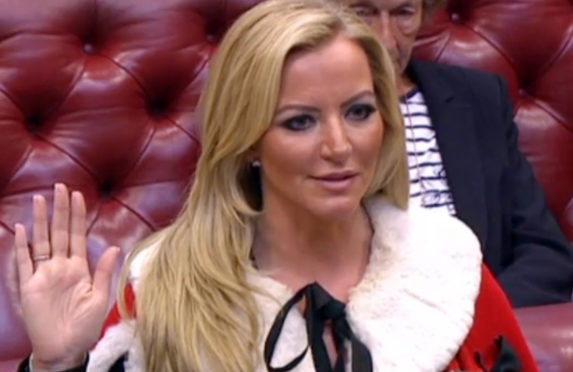
The Scottish peers claiming tens of thousands of pounds for turning up at the House of Lords despite making almost no contribution to debates can be revealed today.
Peers are entitled to claim a tax-free allowance of £305 a day just for attending Westminster, but could be in line for an increase under new proposals.
The silent peer scandal has led to calls for the House of Lords – where the average age is 69 – to be reformed or scrapped entirely.
Scottish peers who haven’t risen even once to speak in the chamber in the past 12 months include Lord Irvine of Lairg, 78, the former Lord Chancellor.
According to Hansard and the theyworkforyou.com website, his last contribution was in October 2014.
He did not apparently speak in debate on any of the 148 days when he attended the Lords last year – when he claimed £40,050.
Lord Irvine infamously spent £59,000 of public money on wallpaper to decorate his Lord residence.
He hasn’t asked any parliamentary questions in the past year and has taken part in 54% of votes.
Lord Moonie, 72, last spoke in the House of Lords in March 2013.
Despite his silence in the chamber, the former Kirkcaldy MP claimed £32,155 in allowances and £13,274 in travel costs for attending the Lords 108 days last year.
He asked 150 parliamentary questions last year and took part in 44% of votes.
Baroness Smith of Gilmorehill, the widow of former Labour leader John Smith, claimed £23,080 for turning up 78 days at the Lords last year.
She last spoke in March 2018 and received answers to nine parliamentary questions in the past year while taking part in 26% of votes.
The Earl of Stair, a second cousin to Prince Charles, last spoke in the main chamber in November 2016. The crossbench peer hasn’t asked any parliamentary questions in the past year and took part in 7% of votes.
He said he has spoken at the EU energy and environment sub-committee, of which he is a member.
He has claimed £7,280 in attendance allowances and £13,184 in travel costs for 28 days.
Lingerie tycoon Michelle Mone has spoken just once in the Lords in the past year, asking in March what steps the government has taken to encourage more tycoons. She was ennobled by former prime minister David Cameron in 2015 and, since then, she has spoken in the Lords chamber just four times.
The multimillionaire, who found-ed the Ultimo underwear company, claimed £6,395 for attending the Lords 26 days last year.
She has asked six parliamentary questions and taken part in 37% of votes.
Her spokesperson said: “Baroness Mone has made every effort to attend the most important votes in the House of Lords and will continue to do. Baroness Mone hasn’t missed any two or three-line whips. Her attendance in the House and voting record is publicly available.
“As with all other peers who are not ministers or office holders, she does not receive a salary.
“Lady Mone was aged only 44 when appointed to the House of Lords for life and was not able to step away from her business interests and family commitments.
“She hopes to soon be in a position where she can dedicate more of her time to working in the Lords alongside her charitable interests.”
There are nearly 800 peers in the House of Lords, with an average age of 69.
SNP MP Tommy Sheppard said: “With a substantial list of peers claiming their £300 daily allowance without so much as saying a word on the floor of the chamber in a year, the consignment of this archaic and undemocratic chamber of political has-beens to the dustbin of history is long overdue.”
Alexandra Runswick, director of Unlock Democracy, said: “The House of Lords is not representative, accountable, or democratic. In a democracy it should be the people that decide, through free and fair elections, who makes our laws.”
A House of Lords spokesperson said: “The House of Lords’ primary role is to improve laws for UK citizens. It is funded by the taxpayer and value for money matters.
“The House of Lords is a busy and effective chamber and in the last year its members made more than 2,000 changes to improve legislation, tabled 8,000 written questions, took part in over 160 debates and published more than 150 committee reports.”
Meanwhile, the Lords are considering proposals to increase the allowance for members who live outside London so they can claim for hotels.
One suggestion is it should be the same as the £175 a night MPs can claim.

Enjoy the convenience of having The Sunday Post delivered as a digital ePaper straight to your smartphone, tablet or computer.
Subscribe for only £5.49 a month and enjoy all the benefits of the printed paper as a digital replica.
Subscribe